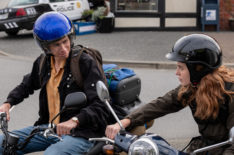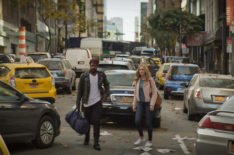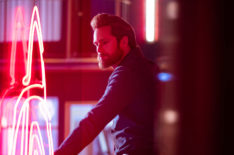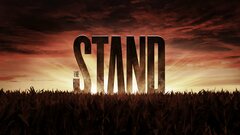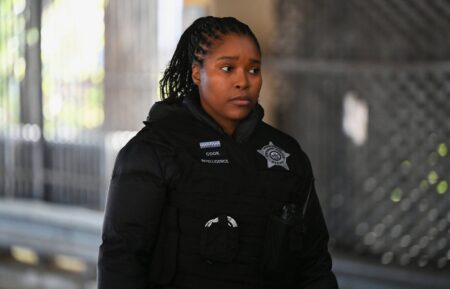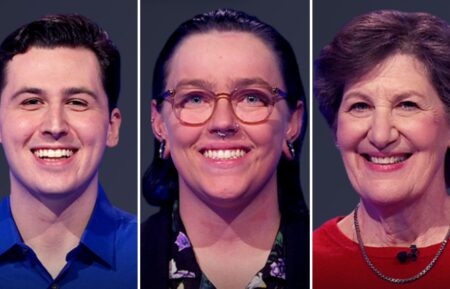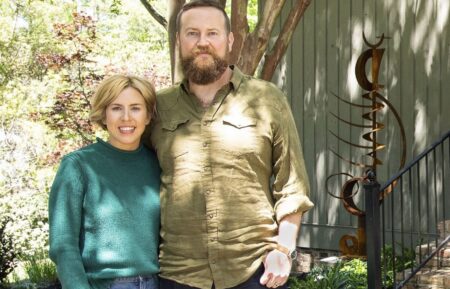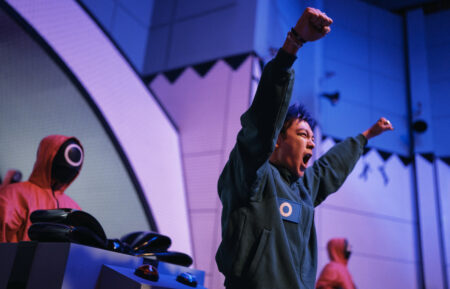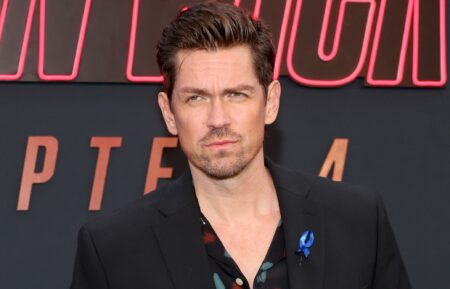‘The Stand’ Boss on Randall Flagg’s Smile, Frannie & Harold on the Road and More
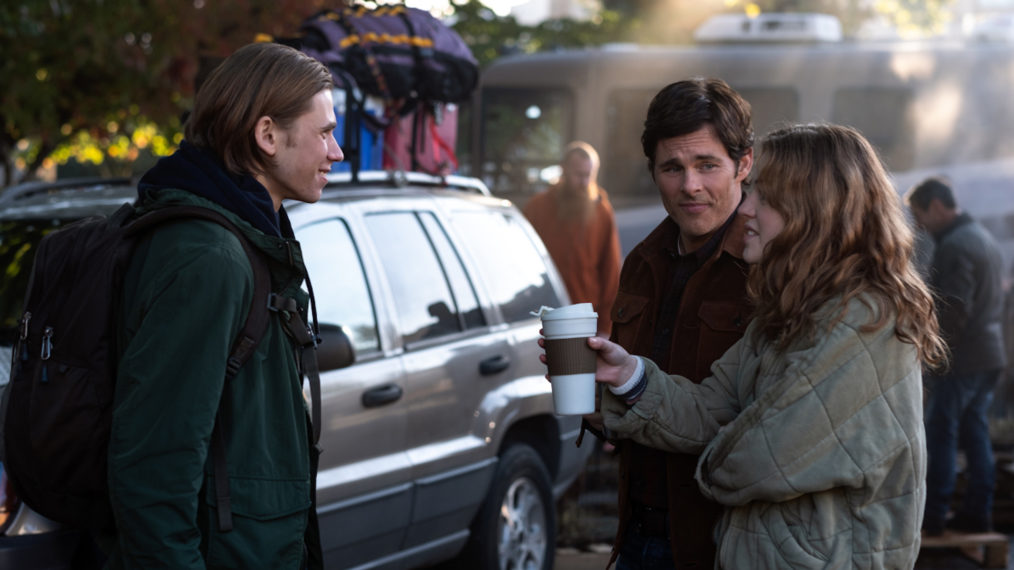
Spoiler Alert
[Warning: The below contains MAJOR spoilers for the series premiere of The Stand, “The End.”]
Something wicked this way comes … courtesy of none other than Randall Flagg (Alexander Skarsgård).
The premiere of The Stand introduces a few key characters of the ensemble: Stu (James Marsden), whose immunity to the virus has landed him in military facilities until everyone dies around him and he’s allowed to leave by the last man standing there (J.K. Simmons’ General Starkey), and Frannie (Odessa Young) and Harold (Owen Teague), who, upon realizing they’re the only ones alive in their town, leave it behind. (He can’t be more thrilled, given his unrequited feelings for her.)
As for the virus, we see that it is let loose into the world when soldier Charles Campion (Curtiss Cook Jr.) flees a military facility … thanks to a foot holding the door open as lockdown commences. That foot belongs to Flagg.
Here, showrunner Benjamin Cavell breaks down the premiere.
Randall Flagg kept that door from closing and is seen in the car with Campion at the end. How much influence did Flagg have when it comes to the release of the virus?
Benjamin Cavell: It seemed to us just from the book, and true to the book, Flagg is really an opportunist and he didn’t create the virus — he didn’t even participate in the initial acts of it, that moment when the woman emerges from the lab and actually comes into contact with Campion in the decontamination room. Flagg did not create that circumstance, but once there was an opportunity to spread chaos and turn the situation to his own ends, then yes, he was facilitating from that moment on.
It seems like Stu may have the most information of anyone so far about the virus, and even still, it’s not much at all.
Yes, that’s totally right. He knows what he’s been able to put together and what he’s demanded to know from the military scientists who are holding him and poking at him because he’s the only one they know has been exposed to this Captain Trips virus who hasn’t die of it within a few days and [want] to figure out why. Yes, he has the most information but still incredibly incomplete information.
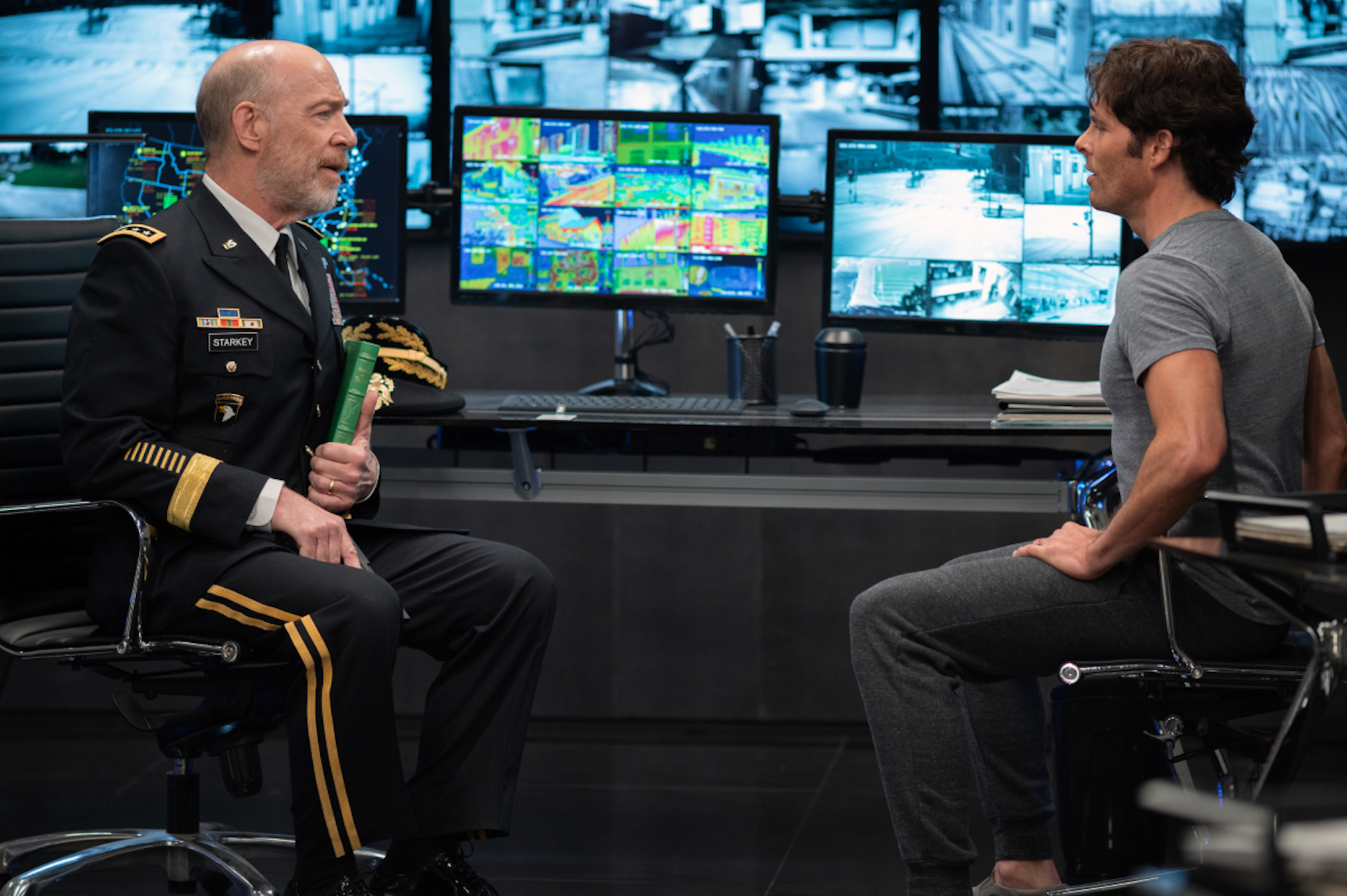
(Robert Falconer/CBS)
What will benefit Stu more going forward — his time serving or his time in those military facilities?
I’m sure the skills he learned in the military are obviously of use to him everywhere, and in Boulder when he reaches it. It’s hard to know how he can gain any benefit from what he finds out in the military facility because all he knows is the desperate search for a cure. By the time he gets anywhere or has any contact with anyone else, those guys are all long gone; whatever they did or didn’t know went with them.
Stu is well-served both by the skills he learned in the military and also [those] he’s developed by being an outdoorsman and a guy who works on oil rigs and seems to enjoy that kind of physical activity and clearly knows how to hunt and gather his own food, stuff you’re going to need to do when all of a sudden there are no more supermarkets.
Will we find out who Cobb (Daniel Sunjata) took orders from or does that not matter in terms of the bigger picture?
It doesn’t matter. We don’t mean that to be a mystery we’re running down. The implication and the part we wanted to get at is Cobb works for the system Even Starkey, who appears to be the guy pulling the strings, certainly in the facility where Stu finds himself, doesn’t have a complete handle on everything happening, nor does Starkey, when we finally get to him, present as evil. It was important to us to show at least that part of it was created by a system rather than by one awful entity.
What does being on the road together mean for both Frannie and Harold and how will that affect what we see from them going forward? After all, we see Stu and Frannie together later.
Since the age of sentience, Harold’s been in love with Frannie Goldsmith, and this time on the road probably is more transformative from Frannie’s point of view. She has always regarded Harold as the weird little brother of her best friend. He’s much younger, and she never regarded him as a peer or a possible romantic interest. It’s just completely out of the realm of possibility for her.
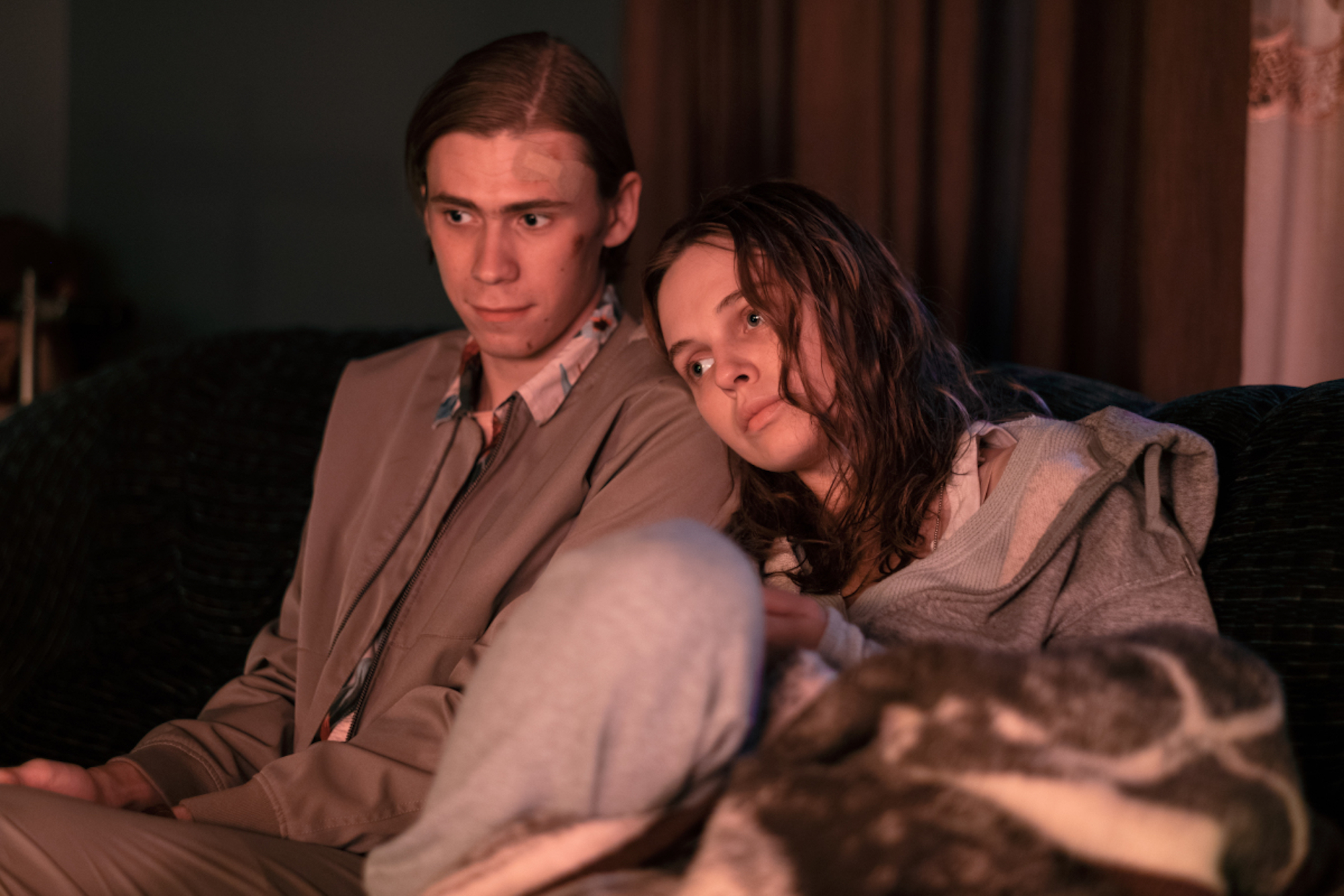
(Robert Falconer/CBS)
The time on the road certainly gives her a deeper sense of Harold’s capability. She is genuinely impressed by how much he’s thought things through and how resourceful he proved to be. She felt protective of him anyway because she used to be his babysitter. But certainly out on the road together and in this dangerous world and accosted as they come to be by people trying to take advantage of the lack of any authority that’ll protect anybody from people bent on doing them harm, she certainly comes to appreciate Harold’s value and also feels even more protective of him.
For Harold — and we get at this as the story goes along — it really just bolsters his sense that this is destiny. I think Harold has some kind of psychological issue, and for him, the only people he’s ever really, deeply cared about are himself and the woman he’s loved since he remembers noticing women existed. Suddenly he finds himself in a world where those are the only two people left, at least as far as he knows for a while. When they’re on the road together, it feels like this is the logical endpoint of Harold’s dreams. Then, of course, he’s rudely awakened when it turns out they’re far from the only people in the world, and in fact there is somebody like James Marsden who comes in and sweeps her off her feet.
Something I noticed about Harold and Flagg’s smiles — Harold’s would make you wary, while with Flagg, his makes you see why people would be drawn to him even though you know he’s leading you somewhere dark.
I’m so glad you say that, because it was very important to us that Flagg — and certainly early on when we meet him, but really as we go through — seemed like a real genuine alternative to Mother Abagail (Whoopi Goldberg) and we are able to imagine people following him who aren’t inherently evil. We try to get at, through Flagg, some of the real appeal of an authoritarian strongman who is — obviously he’s beautiful, he looks like Alexander Skarsgård. He’s charismatic and charming in the way that Skarsgård is. He has supernatural powers. He can levitate. And he claims to have a real handle on what’s going on and what it’s all for, this horror and chaos that they’ve all lived through.
And given the circumstances it is somewhat understandable — and I hope the audience feels [that way] — why people would be drawn to somebody like that. … We would become disillusioned with Flagg when we see what’s really behind it, but it was very important to us that he be attractive and not just be a mustache-twirling bad guy of the kind we’ve seen many times before.
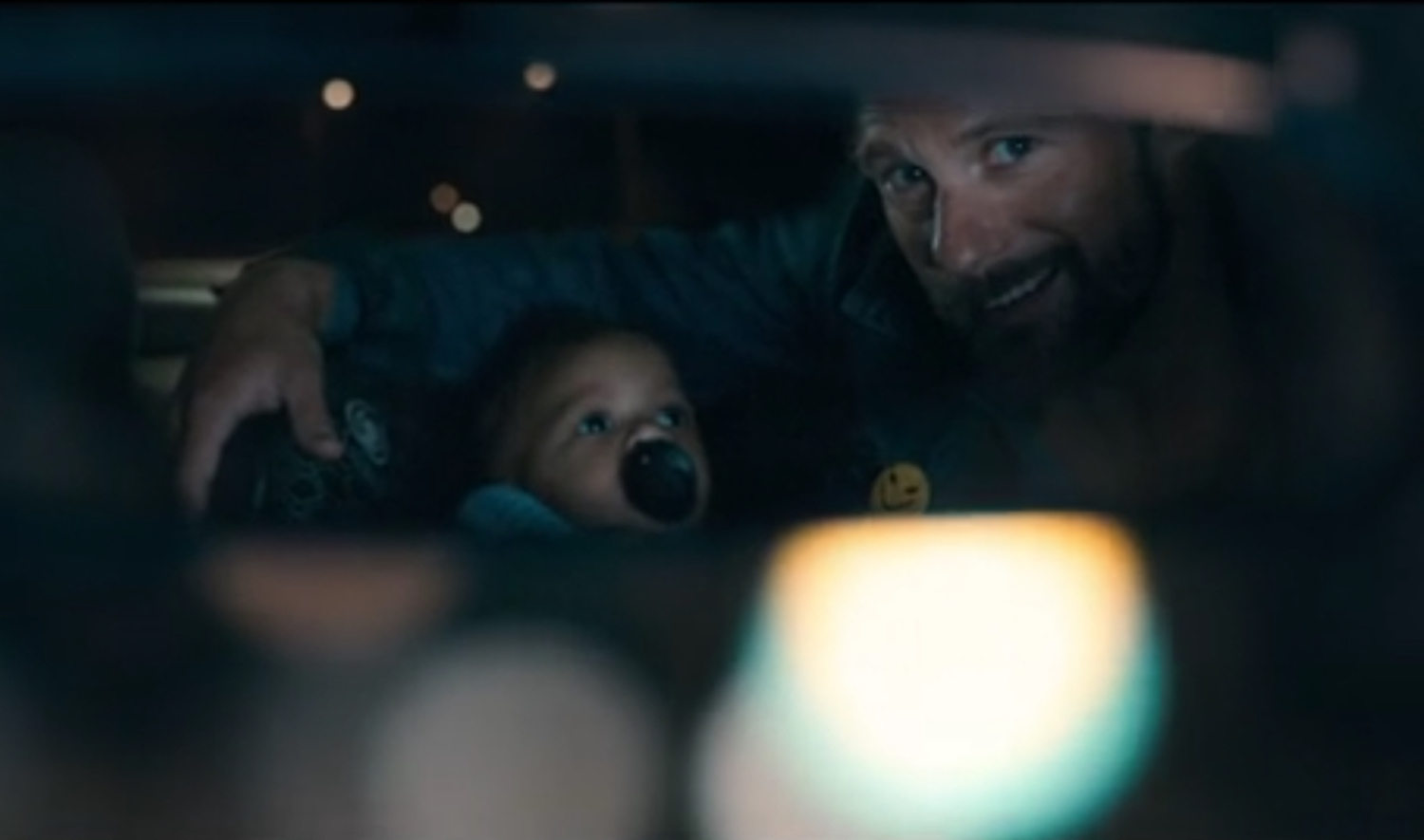
(CBS All Access)
The Stand, Thursdays, CBS All Access
From TV Guide Magazine
How 'Countdown' Recruited Jensen Ackles to Go Full 'Die Hard'
Countdown boss Derek Haas talks creating the character around Ackles, and the cast teases the “Avengers”-like team of the crime thriller. Read the story now on TV Insider.

